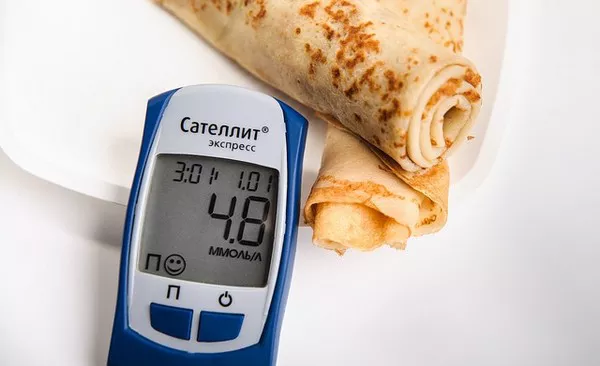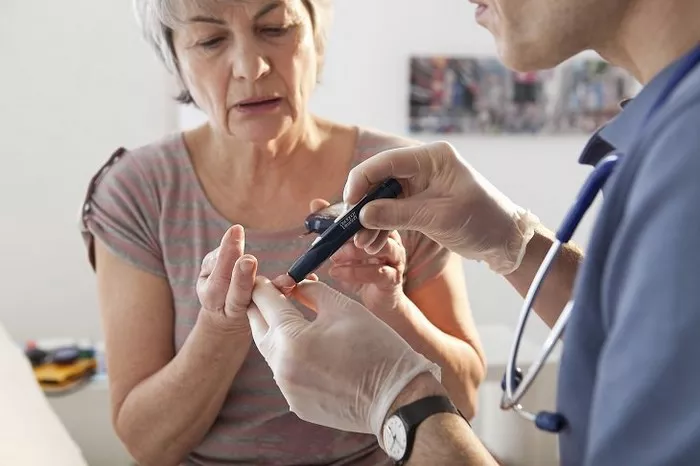Hypoglycemia, defined as an abnormally low level of blood glucose (blood sugar), can range from mild to severe, with the latter posing significant risks to health and life. Severe hypoglycemia is a medical emergency requiring prompt intervention to prevent potentially fatal outcomes. This article explores the various causes of severe hypoglycemia, focusing on mechanisms, risk factors, and preventive measures. Understanding these causes is essential for patients, caregivers, and healthcare providers to effectively manage and mitigate the risks associated with this condition.
Pathophysiology of Hypoglycemia
To comprehend the causes of severe hypoglycemia, it is essential to understand the physiological processes that regulate blood glucose levels. Glucose is the primary energy source for the body’s cells, especially the brain, which relies almost exclusively on glucose for energy. The body maintains blood glucose levels within a narrow range through a complex interplay of hormones, primarily insulin and glucagon, along with other counter-regulatory hormones like epinephrine, cortisol, and growth hormone.
Insulin, produced by the beta cells of the pancreas, lowers blood glucose by promoting its uptake into cells and storage as glycogen in the liver. In contrast, glucagon, produced by the alpha cells of the pancreas, raises blood glucose by stimulating glycogen breakdown and gluconeogenesis (glucose production) in the liver. Hypoglycemia occurs when there is an imbalance between glucose utilization and production, often due to excessive insulin action, insufficient glucagon response, or impaired gluconeogenesis.
Causes of Severe Hypoglycemia
Severe hypoglycemia can result from various underlying causes, which can be broadly categorized into medication-related causes, medical conditions, and lifestyle factors. Each category encompasses specific scenarios that contribute to dangerously low blood sugar levels.
1. Medication-Related Causes
Insulin Therapy
Insulin therapy is a cornerstone in the management of diabetes, particularly type 1 diabetes and advanced type 2 diabetes. While essential for controlling hyperglycemia, insulin can inadvertently cause hypoglycemia if not administered correctly.
- Overdosing: Administering more insulin than required for the amount of carbohydrate intake or blood glucose level can rapidly lower blood glucose, leading to hypoglycemia.
- Timing Errors: Mistiming insulin doses relative to meals or physical activity can result in periods of excessive insulin activity.
- Variation in Absorption: Differences in insulin absorption due to injection site variability or changes in physical activity can lead to unexpected hypoglycemia.
Sulfonylureas and Meglitinides
Sulfonylureas (e.g., glipizide, glyburide) and meglitinides (e.g., repaglinide, nateglinide) are oral medications that stimulate insulin release from the pancreas. These drugs can cause hypoglycemia, particularly in older adults or those with renal impairment, as their effects are prolonged and less predictable.
- Long Duration of Action: Sulfonylureas have a long half-life, which increases the risk of prolonged hypoglycemia.
- Renal Impairment: Reduced renal function can delay the clearance of these medications, exacerbating hypoglycemia risk.
Combination Therapy
Patients on multiple glucose-lowering agents, including insulin, sulfonylureas, or other oral medications, face an increased risk of hypoglycemia due to the synergistic effects of these drugs. Careful monitoring and dose adjustments are crucial in such cases.
2. Medical Conditions
Endocrine Disorders
Various endocrine disorders can predispose individuals to hypoglycemia by disrupting glucose homeostasis.
- Adrenal Insufficiency: The adrenal glands produce cortisol, a hormone that increases blood glucose by stimulating gluconeogenesis and inhibiting insulin action. Adrenal insufficiency, whether primary (Addison’s disease) or secondary, can reduce cortisol levels, leading to hypoglycemia.
- Hypopituitarism: The pituitary gland regulates adrenal function through adrenocorticotropic hormone (ACTH). Hypopituitarism, which impairs ACTH production, can result in secondary adrenal insufficiency and consequent hypoglycemia.
- Growth Hormone Deficiency: Growth hormone (GH) counteracts insulin and promotes gluconeogenesis. GH deficiency, seen in conditions like hypopituitarism, can predispose to hypoglycemia, particularly in children.
Liver Disease
The liver plays a pivotal role in maintaining blood glucose levels through glycogen storage and gluconeogenesis. Liver diseases, such as cirrhosis or severe hepatitis, impair these functions, increasing the risk of hypoglycemia.
- Reduced Glycogen Stores: Chronic liver disease depletes glycogen stores, limiting the liver’s ability to release glucose during fasting.
- Impaired Gluconeogenesis: Liver dysfunction hampers gluconeogenesis, further compromising glucose production during periods of need.
Renal Failure
The kidneys contribute to glucose homeostasis by filtering glucose and reabsorbing it into the bloodstream. In renal failure, reduced gluconeogenesis and impaired clearance of glucose-lowering medications increase hypoglycemia risk.
- Decreased Gluconeogenesis: The kidneys contribute significantly to gluconeogenesis, particularly during fasting. Renal impairment diminishes this function.
- Delayed Medication Clearance: Many glucose-lowering medications are excreted by the kidneys. Renal failure prolongs their action, increasing hypoglycemia risk.
Sepsis and Severe Infections
Sepsis and severe infections can cause hypoglycemia through multiple mechanisms, including increased glucose utilization by immune cells, impaired gluconeogenesis due to liver dysfunction, and adrenal insufficiency. In critically ill patients, sepsis-induced hypoglycemia is a marker of severe disease and poor prognosis.
3. Lifestyle Factors
Dietary Factors
Diet plays a crucial role in blood glucose regulation. Inadequate carbohydrate intake or unbalanced meals can precipitate hypoglycemia, particularly in individuals on glucose-lowering medications.
- Skipping Meals: Omitting meals or consuming meals with insufficient carbohydrates can lead to hypoglycemia, especially in those taking insulin or sulfonylureas.
- Alcohol Consumption: Alcohol impairs gluconeogenesis and can cause delayed hypoglycemia. This effect is pronounced when alcohol is consumed on an empty stomach or with inadequate food intake.
Physical Activity
Exercise increases glucose uptake by muscle cells, which can lead to hypoglycemia if not balanced with appropriate carbohydrate intake or insulin dose adjustment.
- Unplanned Exercise: Unexpected physical activity without corresponding dietary or medication adjustments can rapidly lower blood glucose levels.
- Prolonged Exercise: Extended periods of physical activity increase the risk of hypoglycemia during and after exercise due to enhanced insulin sensitivity and glycogen depletion.
Weight Loss and Caloric Restriction
Significant weight loss or caloric restriction can increase insulin sensitivity and reduce hepatic glucose production, increasing the risk of hypoglycemia in individuals on glucose-lowering therapy. Close monitoring and medication adjustments are essential during periods of weight loss or dietary changes.
Preventive Strategies and Management
Preventing severe hypoglycemia involves a multifaceted approach that includes patient education, careful medication management, regular monitoring, and lifestyle modifications. Key strategies include:
1. Patient Education
Educating patients about the signs and symptoms of hypoglycemia, appropriate carbohydrate intake, and the importance of regular meals and snacks is crucial. Patients should be instructed on how to adjust insulin or medication doses based on food intake and physical activity.
2. Blood Glucose Monitoring
Frequent self-monitoring of blood glucose (SMBG) allows for timely detection and management of hypoglycemia. Continuous glucose monitoring (CGM) systems provide real-time glucose data and alerts for rapid intervention.
3. Medication Management
Tailoring medication regimens to individual needs and circumstances is essential to minimize hypoglycemia risk.
- Adjusting Doses: Insulin and oral medication doses should be adjusted based on blood glucose trends, meal patterns, and physical activity levels.
- Using Short-Acting Insulin: Short-acting insulin analogs can reduce the risk of hypoglycemia compared to longer-acting formulations.
- Avoiding High-Risk Medications: Where possible, alternatives to sulfonylureas and meglitinides should be considered, particularly in high-risk populations.
4. Lifestyle Modifications
Adopting a balanced diet, regular physical activity, and appropriate alcohol consumption are critical in preventing hypoglycemia.
- Balanced Diet: Ensuring adequate carbohydrate intake with each meal and incorporating snacks as needed can help maintain stable blood glucose levels.
- Regular Exercise: Structured exercise programs with planned carbohydrate intake and medication adjustments can reduce the risk of exercise-induced hypoglycemia.
- Alcohol Moderation: Limiting alcohol intake and consuming it with food can prevent alcohol-induced hypoglycemia.
5. Medical Supervision
Regular follow-up with healthcare providers is essential for ongoing assessment and adjustment of treatment plans.
- Routine Check-Ups: Regular medical appointments allow for monitoring of blood glucose control, assessment of medication efficacy, and timely identification of potential issues.
- Specialist Consultation: Referral to endocrinologists or diabetes specialists may be necessary for complex cases or when managing concurrent medical conditions.
See also: Defining Hypoglycemia
Conclusion
Severe hypoglycemia is a complex condition with multiple potential causes, ranging from medication-related issues to underlying medical conditions and lifestyle factors. Effective management requires a comprehensive approach that includes patient education, regular monitoring, individualized medication management, and lifestyle modifications. By understanding the causes and implementing preventive strategies, patients and healthcare providers can work together to reduce the risk of severe hypoglycemia and improve overall diabetes management.
Related topics:
Why Do I Get Hypoglycemia At Night

























